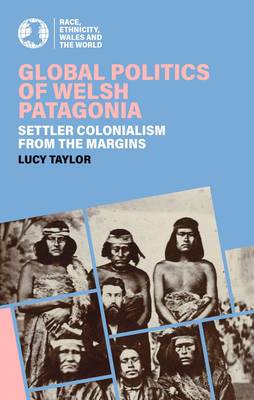
En raison d'une grêve chez bpost, votre commande pourrait être retardée. Vous avez besoin d’un livre rapidement ? Nos magasins vous accueillent à bras ouverts !
- Retrait gratuit dans votre magasin Club
- 7.000.000 titres dans notre catalogue
- Payer en toute sécurité
- Toujours un magasin près de chez vous
En raison de la grêve chez bpost, votre commande pourrait être retardée. Vous avez besoin d’un livre rapidement ? Nos magasins vous accueillent à bras ouverts !
- Retrait gratuit dans votre magasin Club
- 7.000.0000 titres dans notre catalogue
- Payer en toute sécurité
- Toujours un magasin près de chez vous
33,95 €
+ 67 points
Description
A necessary examination of Wales and its Patagonian settlement Y Wladfa through a decolonial lens. Inspired by decolonial thinking, Global Politics of Welsh Patagonia challenges romantic images of Y Wladfa, the Welsh Patagonian settlement founded in 1865. Drawing on archival sources written in Spanish, Welsh, and English, it exposes the complex human relationships of this settler colony and disrupts the myth of Welsh-Indigenous friendship by foregrounding Indigenous experience and revealing underrepresented accounts in the record. A newly developed framework applies three logics--possession, racialization/barbarization, and assimilation--to make sense of settler colonialism in Patagonia and to debate Wales's complex position as both colonized and colonizer. A new analysis of contemporary cultural products (television, film, textbooks) further demonstrates how the romantic view continues to shape racial stereotypes today, concluding that such settler-origin countries as Wales are vital sites of decolonial debate.
Spécifications
Parties prenantes
- Auteur(s) :
- Editeur:
Contenu
- Nombre de pages :
- 248
- Langue:
- Anglais
- Collection :
Caractéristiques
- EAN:
- 9781837722167
- Date de parution :
- 20-05-25
- Format:
- Livre broché
- Format numérique:
- Trade paperback (VS)
- Dimensions :
- 138 mm x 216 mm
- Poids :
- 360 g

Les avis
Nous publions uniquement les avis qui respectent les conditions requises. Consultez nos conditions pour les avis.






